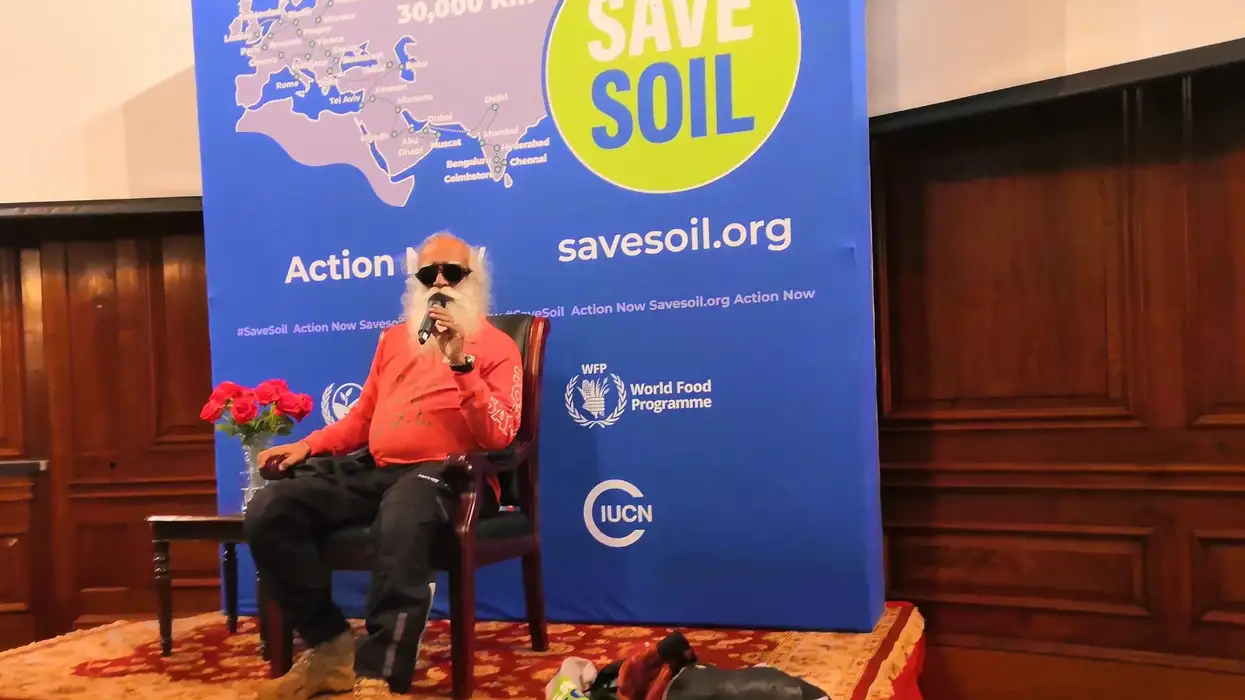LONDON'S Parliament Square was the flag-off point for Indian spiritual leader Sadhguru's 30,000-km motorbike tour on Monday (21), as he set off on his Save Soil awareness campaign across Europe and the Middle East en route to India.
The yoga guru, 64, donned his biking gear for the 100-day tour, which will take him to Amsterdam, Berlin and Prague this week.
After a series of events scheduled in key cities along the way, he is aiming for a homecoming in New Delhi in 75 days in honour of India's 75th year of independence.
“It's extremely important that we act now. I've been talking about this for over 24 years, but a solution can only happen when there is a positive policy in every nation,” Sadhguru told reporters at the Indian High Commission in London before setting off on his bike tour.
“It is still snowing in many parts of Europe and we'll be going through that on a two-wheeler. At this age, it's not really a joy ride. So why am I doing this? Because over 300,000 farmers have committed suicide in the last 20 years. Not just in India, across the world this is happening… one of the main concerns is soil depletion,” he said.
The Save Soil Movement, launched as part of the spiritual leader's Conscious Planet initiative, is aimed at turning the world's attention towards dying soil and growing desertification.
The focus is on getting countries to institute national policies towards increasing the organic content in cultivable soil.
“Whether on the cricket field or on the field of life, if we are to play well, the soil has to be well. Time to come together and turn things around. Let's make it happen,” he said, during a visit to the iconic Lord's Cricket Ground for interaction with Middlesex Cricket Club (MCC) as part of the UK leg of his tour.
The campaign, which is backed by the World Food Programme and the United Nations Convention to Combat Desertification, calls on policy-makers around the world to make soil regeneration a priority.
“No matter how much wealth, education, and money we have, our children cannot live well unless we restore the soil and water. Conscious Planet is the only way forward,” Sadhguru, whose full name is Jagadish Vasudev, said at the University of Birmingham last week.
His lone motorbike journey ends in time for the Summer Solstice on June 21 at the Cauvery Calling project, which is enabling the planting of 2.42 billion trees in private farmlands in the Cauvery river basin in south India to restore the severely depleted river and revitalise the soil.
According to the UN Convention to Combat Desertification (UNCCD), more than 90 per cent of the earth's soil could become degraded by 2050, leading to catastrophic crises worldwide including food and water shortages, droughts and famines, adverse climate changes, mass migrations and unprecedented rates of species extinction.
The Save Soil campaign aims to inspire at least 3.5 billion people, or 60 per cent of the world's electorate, to support long-term government policies to revitalise the soil and reverse its depletion.
(PTI)
Sadhguru sets off on 30,000-km Save Soil road trip from London




